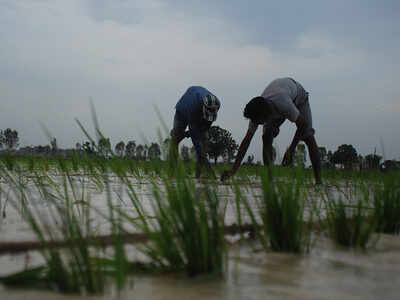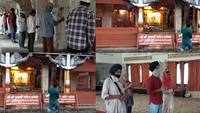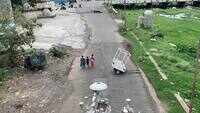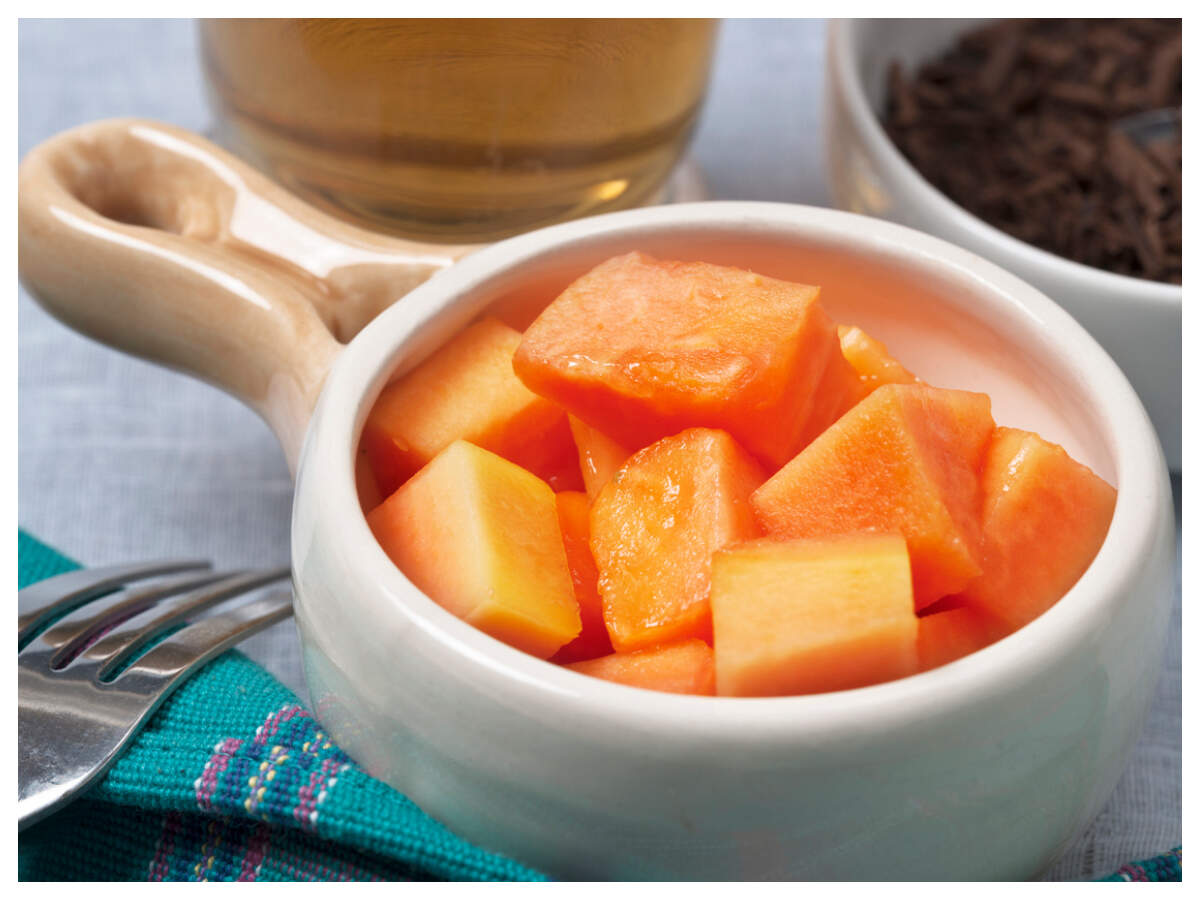
KARNAL: As paddy transplantation began amid the labour shortage, farmers prepared their fields and local labourers transplanted the crop. Agriculture department officials said there are 12 hectares under paddy cultivation in the state.
This year, the government launched the “Mera Paani, Meri Virasat”, scheme, under which it planned to reduce the area under paddy by 1 lakh hectares by diversifying to other crops like maize, bajra, cotton and pulses.
With a large number of migrant workers returning to their native places during the lockdown, the labour crisis was expected. Farmers said shortage of labour during the Covid-19 crisis has led to rise in remuneration for paddy transplantation from Rs 3,500 per acre to Rs 4,000 per acre. Migrant labourers used to charge Rs 2,500 or 2,700 per acre. Due to the lockdown and labour crisis, costs have almost doubled.
“There is a major problem of labour in transplanting the paddy crop this Kharif season. Local labourers are taking advantage of the migrant labourer shortage and have hiked their remuneration. Due to this, input cost of paddy has increased. They are exerting pressure on farmers while saying that they have no time as they are already booked,” Anil Rana, a farmer from Assandh block, said.
Parveen Kaushik, a farmer from Nilokheri block said, “We have talked to permanent labour contractors in Bihar and they are ready to come for paddy transplanting but they want us (farmers) to bear the cost of bringing them back. This is a very expensive and complex procedure now.”
Dr Sunil Bazad, SDO, Agriculture Department, Karnal said since the department fixed June 15 as the date for paddy transplantation, farmers started transplanting the crop from Monday onwards.
He said they expected paddy to be planted in around 1.70 lakh hectares in the district. The district agriculture department has fixed a target of 5,000 hectares under “Mera Paani, Meri Virasat” (Crop diversification) scheme. So far, 4,000 farmers have agreed to diversify crops on 3,204 hectares. Around 5,000 acres have been cultivated with DSR method in Karnal district. Of them, around 1,000 hectares were cultivated in Assandh block alone.
This year, the government launched the “Mera Paani, Meri Virasat”, scheme, under which it planned to reduce the area under paddy by 1 lakh hectares by diversifying to other crops like maize, bajra, cotton and pulses.
With a large number of migrant workers returning to their native places during the lockdown, the labour crisis was expected. Farmers said shortage of labour during the Covid-19 crisis has led to rise in remuneration for paddy transplantation from Rs 3,500 per acre to Rs 4,000 per acre. Migrant labourers used to charge Rs 2,500 or 2,700 per acre. Due to the lockdown and labour crisis, costs have almost doubled.
“There is a major problem of labour in transplanting the paddy crop this Kharif season. Local labourers are taking advantage of the migrant labourer shortage and have hiked their remuneration. Due to this, input cost of paddy has increased. They are exerting pressure on farmers while saying that they have no time as they are already booked,” Anil Rana, a farmer from Assandh block, said.
Parveen Kaushik, a farmer from Nilokheri block said, “We have talked to permanent labour contractors in Bihar and they are ready to come for paddy transplanting but they want us (farmers) to bear the cost of bringing them back. This is a very expensive and complex procedure now.”
Dr Sunil Bazad, SDO, Agriculture Department, Karnal said since the department fixed June 15 as the date for paddy transplantation, farmers started transplanting the crop from Monday onwards.
He said they expected paddy to be planted in around 1.70 lakh hectares in the district. The district agriculture department has fixed a target of 5,000 hectares under “Mera Paani, Meri Virasat” (Crop diversification) scheme. So far, 4,000 farmers have agreed to diversify crops on 3,204 hectares. Around 5,000 acres have been cultivated with DSR method in Karnal district. Of them, around 1,000 hectares were cultivated in Assandh block alone.

Coronavirus outbreak
Trending Topics
LATEST VIDEOS
City
 Shocking: Teen in UP given electric shocks, burned with molten wax over suspicion of theft
Shocking: Teen in UP given electric shocks, burned with molten wax over suspicion of theft  Most curbs go, devotees offer prayers at temples, mosques, gurdwaras in corona-hit Bhopal
Most curbs go, devotees offer prayers at temples, mosques, gurdwaras in corona-hit Bhopal  Gujarat: Surat teacher depicts Covid-19 crisis through his art work
Gujarat: Surat teacher depicts Covid-19 crisis through his art work  Pune: Riverside road from Bhide bridge towards Erandwane closed for traffic again
Pune: Riverside road from Bhide bridge towards Erandwane closed for traffic again
More from TOI
Navbharat Times
Featured Today in Travel
Quick Links
Kerala Coronavirus Helpline NumberHaryana Coronavirus Helpline NumberUP Coronavirus Helpline NumberBareilly NewsBhopal NewsCoronavirus in DelhiCoronavirus in HyderabadCoronavirus in IndiaCoronavirus symptomsCoronavirusRajasthan Coronavirus Helpline NumberAditya ThackerayShiv SenaFire in MumbaiAP Coronavirus Helpline NumberArvind KejriwalJammu Kashmir Coronavirus Helpline NumberSrinagar encounter
Get the app





